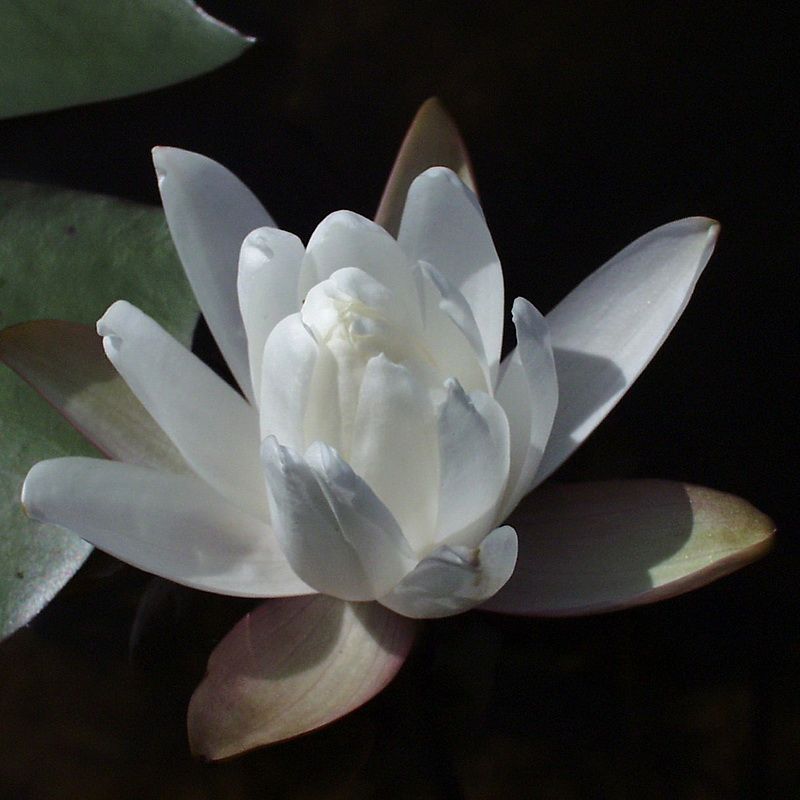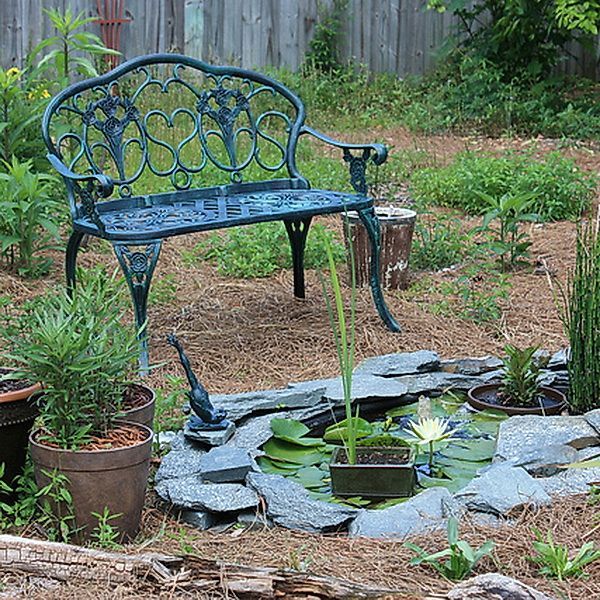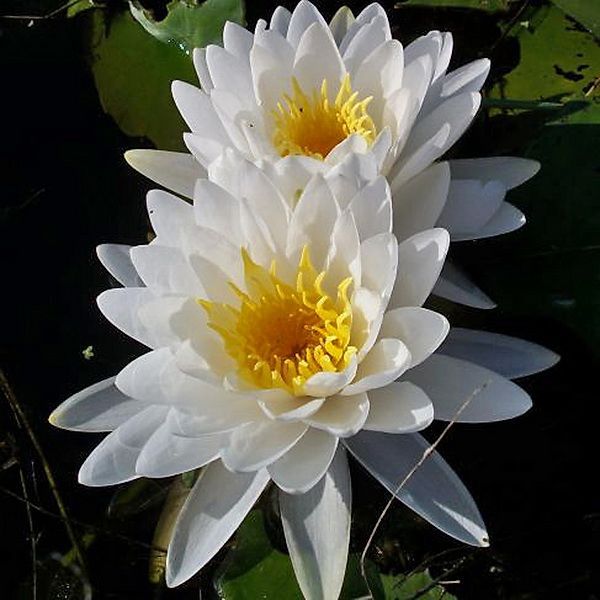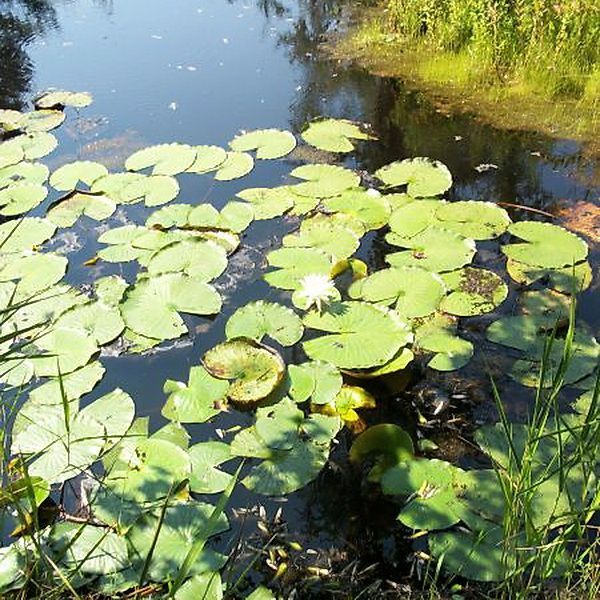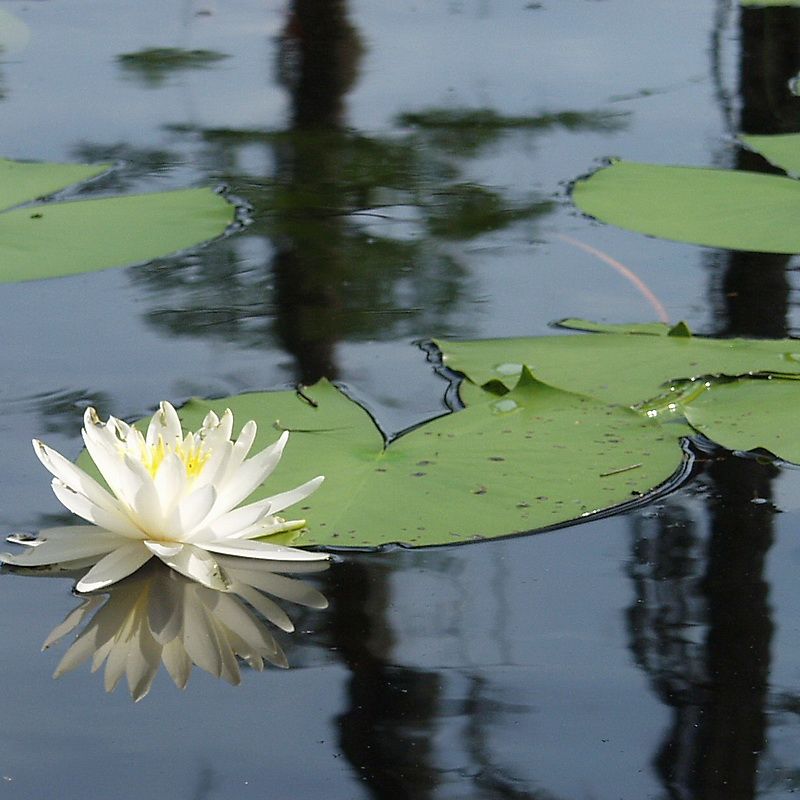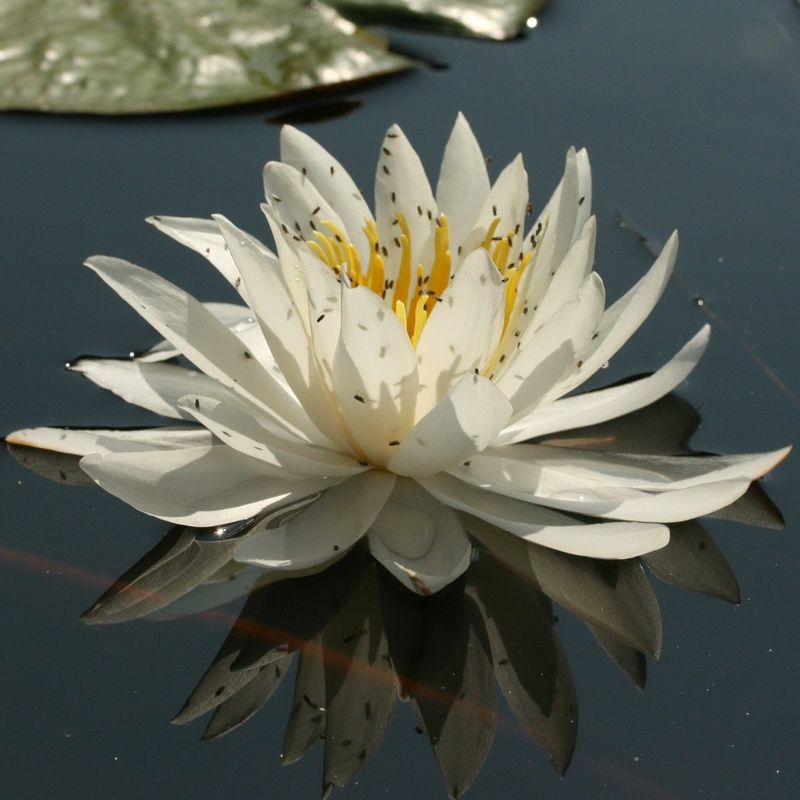FNPS Plant Database
Nymphaea odorata
Nomenclature
Common Name:
Synonym(s):
Genus species:
Family:
Nymphaeaceae
Plant Specifics
Form:
Size:
Life Span:
Long-lived perennial
Flower Color:
Fruit Color:
Phenology:
Noted For:
Landscaping
Recommended Uses:
Considerations:
Availability:
Propagation:
Light:
Moisture Tolerance:
Always Flooded---------------------------------Extremely Dry
■■■■■■■■■□□□□□□□□□□□□□□□□□□□□□□□□□□□□□□□□□
Aquatic -to- Stays wet
Salt Water Flooding Tolerance:
Unknown
Salt Spray/Salty Soil Tolerance:
Low/no tolerance of salty wind or direct salt spray
Soil or Other Substrate:
Sand, Clay, Loam, Organic
Soil pH:
Suitable to Grow In:
8A,8B,9A,9B,10A,10B

USDA zones are based on the average annual extreme minimum winter temperature.
Don't know your zone? Click here to search by zip code.
Vouchered In:
Ecology
Wildlife:
Flies, bees, and beetles have been recorded.
Native Habitats:
Comments:
Ethnobotany:
General Comments:
Citations:
Wiersema, J. H. (1988). Reproductive Biology of Nymphaea (Nymphaeaceae). Annals of the Missouri Botanical Garden, 75(3), 795–804.( https://doi.org/10.2307/2399367 ). Accessed 2026.
Nelson, Gil. (2003). Florida's Best Landscape Plants: 200 Readily Available Species for Homeowners and Professionals. University Press of Florida, Gainesville, FL.
Osorio, Rufino. (2001). A Gardener's Guide to Florida's Native Plants. University Press of Florida, Gainesville, FL.
Wunderlin, R. P, B. F. Hansen, A. R. Franck, and F. B. Essig. (1999+). Atlas of Florida Plants. ( https://florida.plantatlas.usf.edu/ ). [S. M. Landry and K. N. Campbell (application development), USF Water Institute.] Institute for Systematic Botany, University of South Florida, Tampa, FL.




